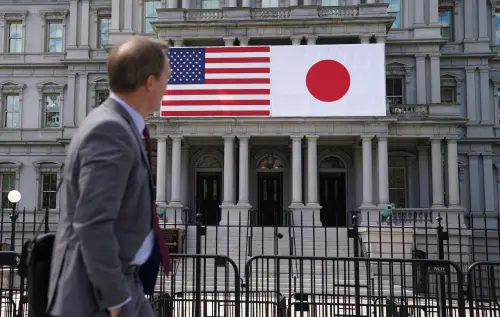The makings of a crisis are evident on the Korean peninsula. And it is not about North Korea’s clandestine uranium-enrichment program or about the Dec. 19 presidential elections. Instead the crisis revolves around the U.S. armed forces, which are badly mishandling relations with South Korea. Not only is this increasing anti-Americanism among long-standing friends complicating day-to-day alliance activities, it is making the United States begin to resemble, in Korean eyes, the latest in a long line of foreign occupiers.
The tensions may not undercut the alliance in immediate terms; the threat from North Korea remains too real and other bonds remain too strong for South Koreans to take such a dramatic step. But over the longer term, Seoul might see more and more advantages to associating with China and fewer to working with the U.S. Nearly 15,000 people took part Sunday in a show of anti-American sentiment, the largest in years.
The current situation has political antecedents dating back two years, to when differences between President Bush’s hard-line philosophy toward North Korea and South Korean President Kim Dae Jung’s softer “sunshine policy” were perceived in Seoul (correctly or not) as undercutting inter-Korean efforts at detente.
But relations between South Korea and the U.S. really took their downturn after the accidental deaths of two South Korean teenagers last summer. Apparently, a U.S. armored vehicle traveling on a winding road during a military maneuver hit the two girls. The two American personnel involved were on duty at the time of the accident, meaning that under existing but outdated alliance law they were tried in a secretive U.S. military court. Both were acquitted; no superior officers were tried or otherwise held accountable. Several months later, Bush sent a letter to the South Korean people expressing regret, but that belated and impersonal gesture seems to have done little to assuage a growing anger among the South Korean people, media and government.
Perhaps the acquittal of the U.S. personnel was the right outcome. Accidents happen, but two facts stand out here. First, the basic information about the accident seems to paint the Americans in an unfavorable and guilty light. Second, more information about what happened has been released only very slowly.
The handling of this event highlights a disconnect between Pentagon lawyers tasked with avoiding concessions on alliance legal issues for fear of creating new precedents and strategists who think about the longer-term implications of such decisions on alliance cohesion.
This mix of high-handedness and secrecy is imperious. It reflects the attitude that great powers typically have displayed toward their smaller and weaker allies. It is not the way the U.S. armed forces characteristically conduct themselves. It is wrong.
This lack of American sensitivity has galvanized activist groups and caused anti-Americanism to resonate now with a broader audience in South Korea, arguably more so than at any other time in the postwar era.
Granted, the protests over the last two weeks at U.S. military installations in South Korea do not resemble the radical ideologically committed movements to expel the U.S. from Korea of the 1980s (ban-mi anti-Americanism).
Today’s sentiments, though less radical, do reflect a critical view of the practical civil-military dimensions of the U.S. military footprint (bi-mi anti-Americanism) that has had appeal among South Koreans as a widespread social movement, spearheaded by educated, Internet-savvy nongovernmental organizations and civic action groups.
If the symbol of anti-Americanism in the 1980s was a bandanna-wearing, Molotov-cocktail-toting radical student, today’s symbol is a housewife or a bank employee. This is potentially even more threatening to the long-term future of the alliance, if American heavy-handedness causes this issue-based, bi-mi anti-Americanism to metastasize into the more dangerous ban-mi radical ideology across the broad spectrum of Korean society.
The implications could go far beyond negotiations over future U.S. base rights in South Korea. Beyond its economic exports and markets, Korea is of tremendous strategic value to the United States for its democratic institutions and its military bases and its strong armed forces, which can help the U.S. with global military missions.
Tragic military accidents always strain alliances. Thankfully, enduring interests and strong bonds of friendship and shared experience usually reassert themselves after time. But recovery is much faster and much more likely when those who are responsible for accidents accept responsibility and come clean.


Commentary
Op-edA Clumsy U.S. Risks Ties to Seoul
December 11, 2002